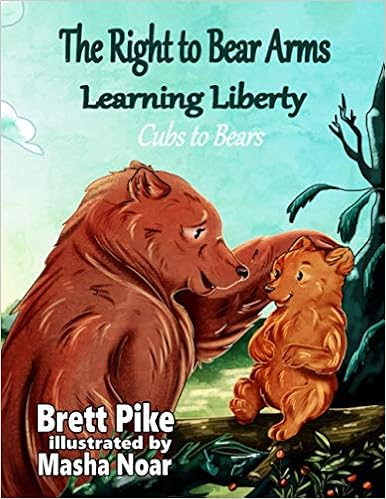Book Review
America Transformed: The Rise and Legacy of American Progressivism
It is no secret that American public life is fracturing. The fissures can be seen in our gladiatorial-like Supreme Court nomination hearings, the collapse of confidence in our institutions, and the mounting sense that many have that elections won’t change the country’s fundamental trajectory. These disputes are merely symptoms, however, of a broader problem, the roots of which extend back decades.
As Ronald J. Pestritto, graduate dean and professor of politics at Hillsdale College, argues in America Transformed, our present-day clashes reflect a fundamental “divide over first principles,” which he traces to the rise of the Progressive Movement in the late nineteenth century. Pestritto makes a convincing case that the Progressives—including Woodrow Wilson, Theodore Roosevelt, Herbert Croly, and John Dewey—sought to “revolutionize both the theory and practice of American government.”
The Progressives had their differences and factions: consider the fierce 1912 presidential campaign between Wilson and Roosevelt. Yet they adhered to a “coherent set of principles, with a common purpose.” They unleashed a “direct assault on the core ideas of the American founding,” openly rejecting the natural rights teachings of the Declaration of Independence. Wilson once told an audience that “if you want to understand the real Declaration of Independence, do not repeat the preface”—the same preface that contains the most concise articulation of the Founders’ political theory.
Pestritto argues that, for progressives like education reformer Dewey, the Founders’ “great sin” was to think that principles such as a natural human equality in rights and government by consent transcended “the particular circumstances of that day.” Influenced by Hegel’s philosophical idealism, they argued that historical progress had shown that what the Founders thought were universal truths were in fact simply ideas of their time. In fact, the principles of the American Founding, and the Constitution built to reflect them, actively prevented government from taking the swift action that the public now demanded.
Pestritto suggests that “native influences” had already compromised the American immune system by the time the Progressive Movement emerged. A toxic mix of Social Darwinism, pragmatism, and the rejection of social compact theory in New England and the antebellum South prepared American intellectuals and politicians to accept an alternative account of politics that seemed better able to meet the challenges of modern society. The Progressives claimed that historical progress necessitated a dynamic and perfectible human nature, an idea that the Founders rejected. James Madison’s claim in Federalist 10 that the prevention of majority tyranny would always be a problem in political life was simply false, they believed. Thus Woodrow Wilson and political scientist Frank Goodnow sharply criticized the Constitution’s separation of powers and the slow, methodical lawmaking process the Framers had put in place, which they saw as hopelessly out of step with the public will and too often stymied by a combination of political machines, big business, and other special interests.
Pestritto maintains that the progressives worked toward “democratizing and unifying national political institutions,” though they sometimes differed on the means to achieve this end. Ever the radical, Theodore Roosevelt proposed policies such as overturning judicial decisions and the recall of recalcitrant judges who resisted heavy regulation of business. Herbert Croly, a cofounder of The New Republic, wanted to eliminate political parties altogether.
To make politics fully democratic, the Progressives insisted that political leaders accountable to the people needed to find means of breaking the constitutional logjam—think of Roosevelt’s “bully pulpit.” Roosevelt and Wilson frequently enlisted (and refashioned) the memory of American statesmen such as Abraham Lincoln, John Marshall, and Daniel Webster, men who, in their rendering, had supposedly discerned history’s centralizing trends.
Pestritto argues that as the Progressives seemingly brought politics closer to the people, they simultaneously moved “policymaking power away from popular institutions,” handing it to “educated elites.” They essentially established a fourth branch of government, a vast bureaucracy that wields legislative, executive, and judicial powers—what Madison considered the very definition of tyranny—that would fully bloom during Franklin Delano Roosevelt’s presidency. What we know today as the administrative state (a phrase coined by the political scientist Dwight Waldo in the 1950s) had its genesis in the Supreme Court’s ruling in J.W. Hampton v. United States, which granted broad powers to supposedly nonideological experts insulated from the corrupting effects of electoral politics.
Pestritto notes that this new conception of government—the sharp split between politics and administration—originated in the “laboratories of democracy” of state and local governments. There, Progressive governors such as California’s Hiram Johnson and Wisconsin’s Robert La Follette pushed direct democracy: the ballot initiative, recall, referendum, the direct election of senators, and electoral primaries. Through the establishment of government by unelected commission and the rise of nonpartisan city managers, the notion of expert administration permeated state governments in Oregon, South Dakota, Texas, and Illinois, as well as cities such as Galveston, Cincinnati, Des Moines, and Cleveland.
The Progressives’ strong belief in the notion of historical progress also guided their foreign policy. History had demonstrated that modern democracy was the “permanent and most advanced form of government,” Wilson once wrote. To make the world safe for democracy, the Progressives’ idealistic foreign policy necessitated an aggressive series of interventions in Haiti, Santo Domingo, Cuba, Mexico, and the Philippines.
History had chosen the United States to lead the “children” (as Wilson described other sovereign nations) so that they could someday reach the heights of democratic governance. And should certain “barbaric races” fail to do what they were told, Progressive historian Charles Merriam wrote in a particularly appalling passage, they “may be swept away.”
Some Progressives saw historical progress as the will of God Himself. Marshaling rhetoric that today would be regarded as extreme Christian nationalism, Roosevelt told the Progressive Party convention in 1912, “We stand at Armageddon, and we battle for the Lord.”
Adherents of the Social Gospel, the Progressive Movement’s religious wing, were liberal Protestants who worked to reconcile life “on earth as it is in heaven.” They turned away from concerns over individual salvation and other orthodox theological concerns and instead inculcated a social ethic that sought to use the modern state to equalize economic conditions. Pestritto observes that in one of his more moderate moments Baptist pastor Walter Rauschenbusch called for the “public ownership of essential industries.” By following God’s unfolding plan, which history was revealing to mankind, human beings would someday experience the Eden that our ancestors had failed to maintain.
Pestritto concludes America Transformed by noting that, thanks to the Progressives’ handiwork, “citizens of two different regimes [are] occupying the same country.” The regime that today opposes that of the Founders is far different from what the original Progressives intended, but by uncoupling America from its natural rights foundations, they can justly be credited (or rather, blamed) for inaugurating our current crisis. Pestritto’s concise volume, the best available overview of progressive political thought and practice, will help Americans make sense of the stark divisions that confront us.




